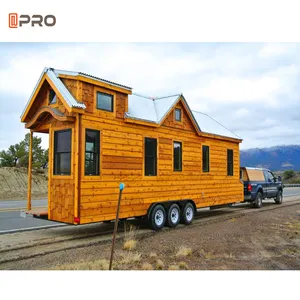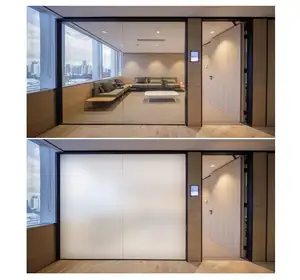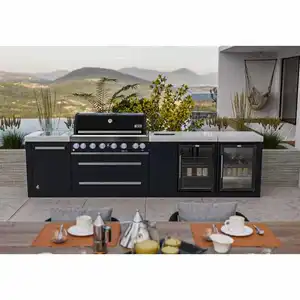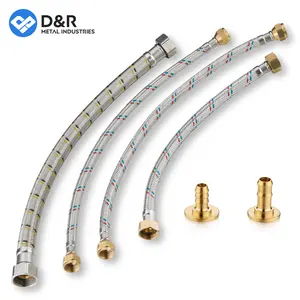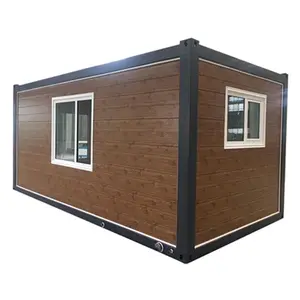Popular in your industry























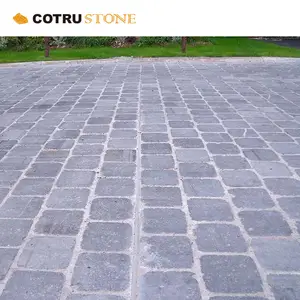















































































































































































Top categories
About curbstones
What are Curbstones
Curbstones, often referred to as kerbstones, are essential components in landscaping and road construction. These sturdy, often rectangular blocks are used to edge sidewalks, streets, and other paved surfaces, providing a clear demarcation between the roadway and pedestrian areas. Curbstones serve both functional and aesthetic purposes, as they enhance the durability of road edges by preventing erosion and vehicle overrun while also contributing to the overall visual appeal of the environment.
Curbstones are designed for long-term outdoor use and are made from various durable materials such as granite, concrete, basalt, limestone, and sometimes even plastics for specific applications. The choice of material affects not only the curbstone's appearance but also its longevity and resistance to weathering. In urban planning and civil engineering projects, curbstones play a critical role in water management by aiding in proper drainage and reducing the potential for flooding on roadways.
The installation of curbstones typically follows a specific procedure that ensures they are aligned correctly and secured in place to withstand traffic loads and environmental conditions. This process involves excavation, sub-base preparation, setting the curbstones to the correct height, and using a suitable bonding material to fix them in place. Curbstones must be installed with precision to ensure safety, functionality, and compliance with local regulations and standards.
Types of Curbstones
Curbstones come in a variety of types to suit different functional requirements and aesthetic tastes. Here is an overview of some commonly used curbstones:
Granite Curbstone: Renowned for its durability and classic appearance, granite curbstones are widely used in both residential and commercial projects. They can withstand heavy traffic and harsh weather conditions, making them an excellent choice for public roads and urban landscapes.
Concrete Curbstone: Concrete curbstones offer versatility in design and affordability. They are often used in modern construction due to their ease of shaping during manufacturing which allows for customized designs.
Basalt Curbstone: Basalt curbstones are known for their natural dark color and high resistance to wear. They are a popular choice for areas that experience heavy rainfall or snow as they provide robust erosion control.
Limestone Curbstone: With their distinctive natural tones, limestone curbstones add a unique visual appeal to any setting. They are generally used for more decorative purposes or in areas with lighter pedestrian traffic.
Plastic Curbstone: Plastic curbstones are lightweight alternatives that are easy to install. They may include LED lighting or reflective features for enhanced visibility at night or in inclement weather conditions.
How to choose Curbstones
Selecting the right curbstones for your project requires consideration of several factors such as material properties, design requirements, environmental conditions, and budget constraints. Here's how businesses can approach this decision-making process:
Material Durability: Assess the level of traffic and environmental stress the curbstone will face. Granite is suitable for high-traffic areas due to its strength, while limestone might be chosen for its aesthetic quality in lower traffic settings.
Design Compatibility: Ensure that the curbstone complements the design aesthetic of the surrounding area. Consider color options and surface finishes that match or enhance the project's visual goals.
Environmental Adaptability: Choose materials that can withstand local weather conditions—basalt is excellent for rainy regions whereas concrete might be preferable in varied climates due to its adaptability.
Cost Effectiveness: Factor in not only initial costs but also long-term maintenance when choosing curbstones. While granite may have a higher upfront cost compared to concrete, its longevity could result in reduced replacement costs over time.
Best Curbstones on Alibaba.com
When sourcing curbstones for your next construction or landscaping project, Alibaba.com stands out as an ideal marketplace catering to businesses across the globe. As one of the leading online B2B platforms since 1999, Alibaba.com connects buyers with suppliers offering a wide array of curbstone options tailored to various commercial needs. Leveraging extensive experience in facilitating international trade solutions, Alibaba.com provides businesses with access to high-quality materials that meet project specifications without compromising on aesthetics or functionality.
Businesses can take advantage of Alibaba.com's user-friendly interface that simplifies the search for appropriate curbstones by filtering options based on material type, color preference, application area, and supplier location among others. With suppliers located worldwide—from Asia to Africa to America—finding a match for your local service location is convenient. Moreover, Alibaba.com's Trade Assurance service adds an extra layer of confidence by protecting payments until delivery is confirmed satisfactory.
Alibaba.com is committed to fostering growth opportunities for small and medium-sized enterprises by offering competitive pricing on bulk purchases which can be especially beneficial when undertaking large-scale projects. Whether you require sleek granite curbstones for an upscale commercial district or durable concrete ones for public roadway construction, Alibaba.com is equipped to serve your business needs with efficiency and reliability.
Common FAQs for Curbstones
What materials are commonly used for curbstones?
Curbstones are typically made from durable materials such as granite, concrete, basalt, limestone, and plastics. The choice of material depends on the required durability and aesthetic preference for the project.
How do I choose the right type of curbstone for my project?
Consider the expected traffic levels, environmental conditions, design compatibility with the surrounding area, and budget constraints. Materials like granite are ideal for high-traffic areas, while limestone may be better suited for decorative purposes.
Are there different colors available for curbstones?
Yes, curbstones come in a variety of colors including gray, yellow, black, white, red, and several shades of granite. The choice of color can be based on design requirements or to conform to local aesthetic standards.
Can curbstones be customized?
Curbstones can often be customized in terms of size, color, finish, and sometimes even shape. Suppliers may offer additional services like graphic design or 3D model design to meet specific project needs.
What surface finishes are available for curbstones?
Surface finishes for curbstones include honed, sandblasted, polished, bush hammered, flamed, and natural split. The finish chosen will affect the appearance and may provide additional functional benefits like slip resistance.
How does curbstone installation contribute to water management?
Curbstones help manage water flow by channeling runoff from roads and pavements into drainage systems. Properly installed curbstones reduce the risk of flooding and prevent erosion along road edges.
What environmental considerations should be taken into account when choosing curbstones?
Curbstones should be selected based on their ability to withstand local weather conditions such as heavy rainfall, extreme temperatures, or freeze-thaw cycles. Basalt is suitable for wet climates, while concrete is adaptable to various environments.
How does the choice of curbstone material impact maintenance requirements?
Some materials like granite require minimal maintenance due to their natural durability against weathering and traffic wear. Others like concrete may require sealing or periodic cleaning to maintain their appearance.
Are there eco-friendly options available for curbstones?
Eco-friendly options for curbstones include those made from recycled materials or sustainably sourced natural stone. It's important to inquire with suppliers about environmentally responsible choices.
What should I consider when sourcing curbstones for a large project?
For large projects, consider purchasing in bulk to secure competitive pricing. Assess the supplier's ability to meet large order quantities within the project timeline and ensure they adhere to quality standards.
Can LED lighting or reflective features be integrated into curbstones?
Some modern plastic curbstones come with integrated LED lighting or reflective elements that enhance visibility at night or during adverse weather conditions, contributing to safety and aesthetics.
What after-sales services are typically offered with curbstone purchases?
After-sale services may include free spare parts, onsite inspection or installation guidance, return and replacement policies, and various forms of technical support. It is important to confirm these services with the supplier beforehand.
How important is machinery testing for curbstone production?
Machinery testing reports provided by suppliers can offer assurance regarding the quality and reliability of the curbstone manufacturing process. Opting for suppliers who provide these reports can be beneficial in ensuring product quality.
What are some key selling points I should look for when choosing a curbstone supplier?
Look for suppliers that offer key benefits such as ease of operation for machinery, high productivity rates, long service life of products, energy-saving options, and a high safety level in their production processes.
